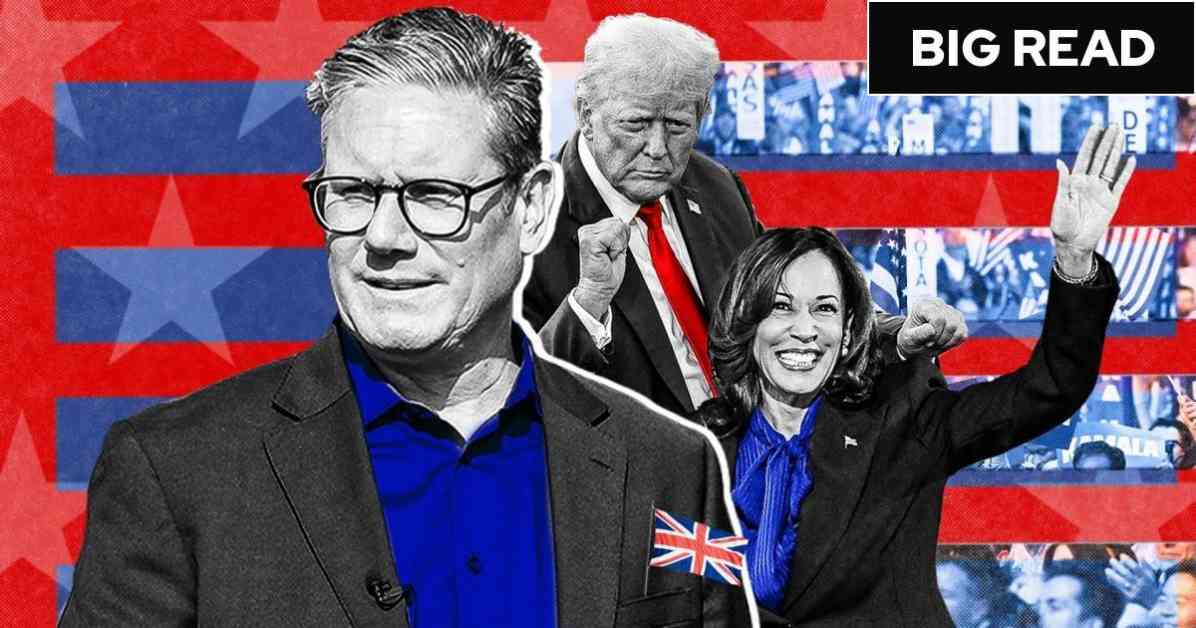Keir Starmer, the leader of the Labour Party, may have a unique opportunity to redefine the relationship between Britain and America in the coming weeks. With Labour’s recent electoral success, the rise of populism in Europe, and Kamala Harris as the Democratic presidential candidate, Starmer could position himself as a key ally to the United States in a time of global upheaval. However, navigating this delicate situation requires caution, as aligning too closely with one candidate could risk alienating the other – particularly Donald J. Trump.
Strategic Maneuvering to Hedge Bets
In an effort to balance diplomatic relations with both presidential candidates, Starmer and his allies are proceeding with caution. A recent meeting between the UK’s Prime Minister and Trump was carefully orchestrated to hedge the country’s American bets. While Trump’s warm words towards the British delegation were encouraging, his subsequent praise for Nigel Farage served as a reminder of the potential volatility in the relationship.
Starmer’s refusal to endorse a specific candidate reflects the delicate balance he must maintain. Government officials have been instructed to adhere to a “very tight script” when discussing the US election, emphasizing neutrality and diplomacy. Even Labour party officials who visited the Democrats’ convention did so in a personal capacity, rather than representing the party as a whole.
Preparing for Uncertainty: Lessons from 2016
The unexpected victory of Donald Trump in 2016 caught British officials off guard, as they had not adequately prepared for the possibility of his presidency. At the time, the UK was still grappling with the aftermath of the Brexit vote, further complicating their approach to US relations. The assumption of a Clinton victory had led to expectations of a more predictable foreign policy landscape, particularly concerning issues such as Northern Ireland post-Brexit.
However, Trump’s win introduced a new level of uncertainty, sparking concerns about the future of US-UK relations. The lack of preparation by the British government highlighted the importance of being ready for any outcome in a US election, regardless of political affiliations.
Navigating the Transatlantic Relationship
While Starmer emphasizes the importance of the “special relationship” between Britain and America, the reality is that this alliance has evolved over time. US foreign policy priorities have shifted towards the Middle East and Asia, diminishing the centrality of European alliances in American diplomatic thinking. Despite this shift, the UK still holds a significant position as a key ally to the US, particularly in matters of security and global cooperation.
The current focus of British officials on Russia serves as a means to appeal to both Harris and Trump, emphasizing the UK’s role in supporting Ukraine and countering Moscow’s influence. By demonstrating a commitment to European security and defense, the UK aims to position itself as a valuable partner to the US, regardless of the election outcome.
Economic Considerations and Trade Policies
In addition to security concerns, economic issues play a crucial role in the US-UK relationship. With the rise of protectionist policies and “America First” rhetoric, the UK faces potential challenges in maintaining a strong economic partnership with the US. Starmer’s priority will be to seek assurances from the new US president that trade policies will not harm the British economy, especially in a post-Brexit landscape.
The threat of protectionism under a Trump presidency poses significant risks for Britain, necessitating careful navigation of trade negotiations and economic cooperation. As the UK looks to strengthen its economic ties with the US, concessions may be required to ensure a mutually beneficial partnership.
Future Prospects and Challenges
Looking ahead, the UK has much to offer the next US president as a strategic ally, particularly in areas such as security, trade, and global diplomacy. However, the UK’s exit from the EU has left it more reliant on the US, potentially making it more susceptible to external pressures.
In the realm of international relations, alignment on issues such as China’s growing influence will be key for the UK and the US. As the two countries navigate complex geopolitical challenges, cooperation and coordination will be essential for maintaining stability and security in an increasingly uncertain world.
Ultimately, Starmer and his team must tread carefully in their diplomatic efforts, balancing the interests of both presidential candidates while safeguarding Britain’s own strategic objectives. As the US election approaches, the future of the US-UK relationship hangs in the balance, with potential opportunities and challenges on the horizon.













